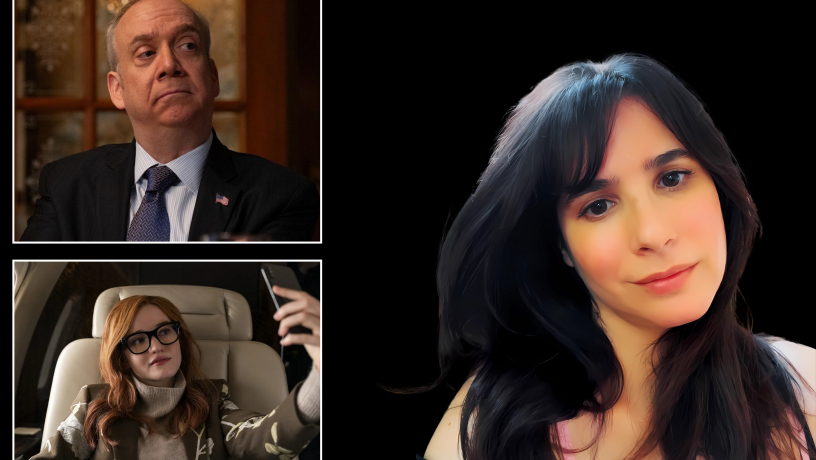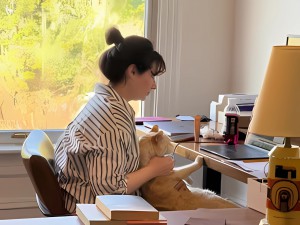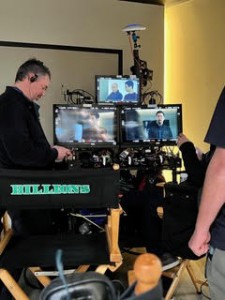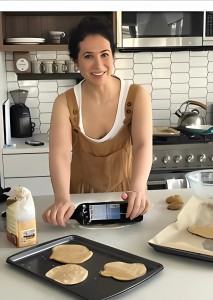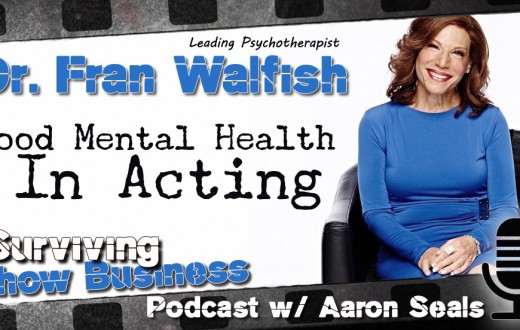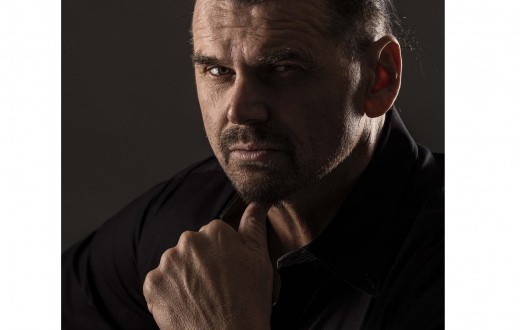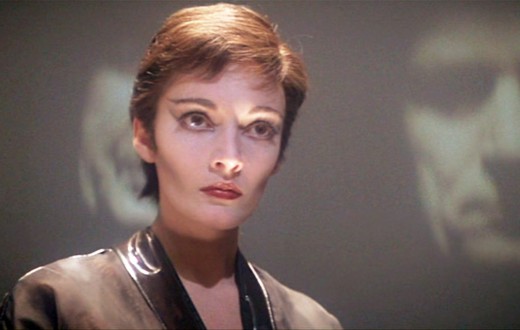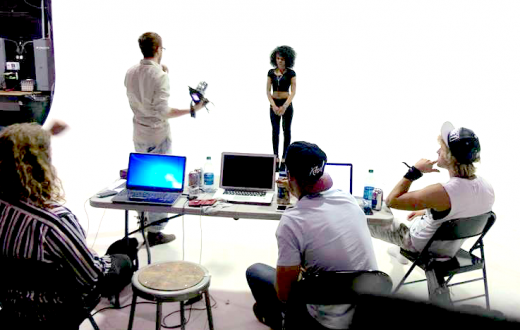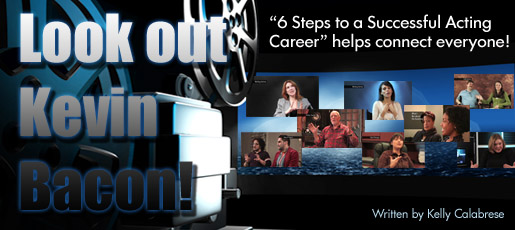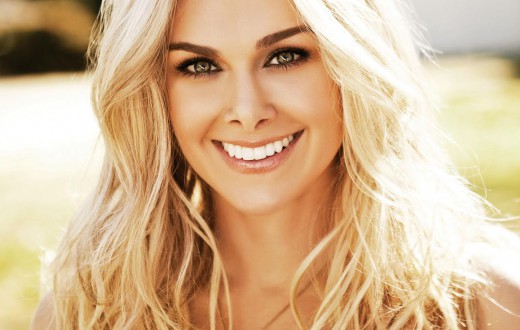Casting Director Allison Estrin. You’ve heard her name time and time again. You know her shows – Billions, Inventing Anna, The Other Two, Bupkis … Oh! Did I forget to mention that she was nominated for an Emmy Award and won the prestigious Artios Award for outstanding achievement in casting?
As you know, few roles are as pivotal yet often overlooked as that of the casting director. Tasked with the responsibility of finding the perfect talent to bring a script to life, casting directors are the unsung heroes behind every beloved character and memorable performance. Among the best in this field is Allison Estrin, a visionary casting director whose keen eye for talent and deep understanding of storytelling have made her a sought-after name in the industry.
In this exclusive DirectSubmit NYCastings interview, we delve into the art and science of casting with Allison Estrin. She shares her journey into the world of casting, the challenges and joys of her work, and her insights on what it takes to find and nurture the next generation of acting talent. Whether you’re an aspiring actor, a film enthusiast, or someone intrigued by the behind-the-scenes magic of Hollywood, Estrin’s perspectives offer a fascinating glimpse into the role of casting in the entertainment industry.
Allison Estrin and cat Frank watching Zoom auditions.
You’ve been in casting for over 15 years. Have there been moments when you’ve questioned why you continue in this line of work?
I love casting, this job encapsulates so many different things and it has always felt like an honor to me that filmmakers trust me to help them bring a project to life. So there haven’t really been many moments where I have questioned if I want to continue casting, but I will say the pandemic certainly created a great deal of challenges that made the job a lot harder. I miss being in the room. While Zoom has helped us see so many more people and allowed actors to be considered from all over the country, I do feel we are missing the intimacy of being in the room and working with actors more directly.
Give us some insight into your youth.
I grew up in Los Angeles and went to a High School with an amazing performing arts program. A lot of the kids I grew up with had parents in the business and many have gone on to have huge careers of their own. I feel very fortunate to have always been surrounded by such incredible talent and large personalities, I think it helped shape so much of how I approach working with directors and actors. I loved doing all the plays and musicals; being a theatre kid teaches you so much about working as a team, gaining confidence and also experiencing rejection. As much as I loved acting in the plays and had dreams of being an actor, one of my old teachers recently reminded me that after every play cast list was posted, I would go into her office and discuss WHY every person was cast in each role, often telling her how I would have cast it differently! So apparently even then I had a casting brain, I just didn’t realize it could be a profession at that age.
I love the fact that you wanted to live in New York so you made the jump from LA. What attracted you to the city that never sleeps? How’d you choose which area you wanted to live in? Roommates?
For me there was never another option – New York always felt like home. I took the leap in 2004 and was lucky to have a best friend living in Queens who had a couch for me to sleep on. His roommate was a Casting Director with Jay Binder Casting, which was a big Broadway Casting office at that time, and she hired me to come into the office and be a monitor for the dance calls and do basic office intern work. I ended up working on many shows with them and if you don’t blink you can see me calling out numbers in the Documentary about casting A Chorus Line called “Every Little Step”.
How do you decide when to cast a well-known actor versus someone who’s less established?
Often this isn’t always a casting directors choice. If I had my way, I would always cast the absolute best actor for every role no matter their level of fame or Instagram followers. But often times producers, financiers, and studios need to have well known actors to help the project get green lit. So, I see the initial process of casting the lead as guiding the team towards actors who have value, but also have the chops.
You’ve worked on casting for various genres, including drama and comedy. How does your approach differ when casting for different genres?
My approach is basically the same no matter the genre. There might be some actors who excel in one versus the other, but I’m always striving to find the best actor to embody a specific character no matter what the tone of the film is. That said, there’s sometimes where you just need someone who can execute on a specific talent — for instance, sometimes you just really need a person with improv ability or whip-fast comic timing.
When casting for a TV series versus a mini-series, actors have much more time to develop their characters in a full series, while in a mini-series, they’re limited to just a few episodes. Have you ever encountered actors who excel in one format but not the other?
I think there might be actors who prefer one or the other, but I think a good actor can absolutely do both. With a limited series or film you have a shorter period of time on screen to show an audience who your character is, so an actor does need to have the ability to be immediately present and full of life the moment they appear on screen. There’s a different level of preparation that has to happen when you know the full arc of a story (similar to being in a play) — as opposed to an ongoing TV show where an actor might not know the characters backstory until, say, Season — so they have to make choices on the spot of how to play a certain scene.
Can you usually tell when an actor is nervous during an audition? How do you handle that situation?
I think a huge part of the job is being able to read people, so I often can tell if an actor is nervous and it’s my job to help them feel more comfortable. Sometimes that can be talking to them for a while to help create a safe space to perform, or it can be just giving them a few more chances. There have also been times when the nerves take over so much that we will ask an actor if they want to come back. What actors have to do can be so vulnerable, and if you aren’t in the right headspace in can be impossible to get passed it. When I first left college, I went on auditions myself and was always shaking! I was a mess! So my heart really goes out to actors who can’t get past the nerves part, and I always strive to make everyone feel as comfortable as possible. It’s another thing I miss about being in the room!
Video Village Billions
Have you ever been to the set of some of the shows you’ve cast? If yes, how did that experience influence your perspective on the casting choices?
I try to visit most of the sets of projects I work on; I even got to play a casting director in Season 3 of THE OTHER TWO and had a blast seeing the show run from such a different perspective! I was often on the set of BILLIONS, after seven seasons you get to know everyone very well and they become a family. During the final season, the show runners encouraged me to shadow a director for an entire episode — it was a truly eye opening experience and I recommend everyone who has an opportunity like that to take it! It’s very easy for everyone on a film or TV set from Writing to Acting to Editing to Camera to AD’s to be so focused on their department that they don’t always see the big picture. When I shadowed the director I was able to really understand how locations affected casting, how production design could dictate wardrobe, and how lighting could shift how something is edited. The full picture came into play in a way I hadn’t known before, and gave me so much respect for every single job. I also saw first hand on both shows, just how hard it is for an actor to remain “in the zone” while on set and to do so many takes. This means that the actors I generally cast on a show like BILLIONS have to be very well trained, so they have the ability to deliver an emotional, probably dialogue heavy, scene multiple times.
I binged Inventing Anna when it came out. How hands on in the casting process was Shonda Rhimes?
I loved working on INVENTING ANNA! I read the NY Magazine article when it came out and became obsessed with the story. So when my casting partner, Henry Russell Bergstein, and I got the call from Shonda Rhimes I was over the moon! Shonda was very hands on, she had wonderful thoughts on all the characters and watched tapes and approved every role. Inventing Anna was one of the first shows back after the pandemic, so it ended up being a hybrid of the in-person auditions we did before, and then moving to self tapes and Zooms. It was the first time a lot of actors had ever done auditions that way, and the first time a creative team had to cast that way, and everyone ended up being so wonderful and game and willing to do whatever it took to make the show. It was that sort of attitude from everyone that I think really made that show special.
In general, has there ever been a clash between you and the production team in who to cast?
I have absolutely had different thoughts on who I would cast, but I love having those discussions with a team – that’s the fun part! But in general, I’m there to help a director bring their vision to life so if they feel very strongly about someone then I want to support that. The only time I have ever had a strong conflict is when a director or team wants to cast an actor that I know has behaved badly on other sets. There are so many talented actors in the world, I see no reason we should reward someone for bad behavior.
Allison Estrin loves cooking!
Anything else you’d like to say?
I know it’s feeling like things are slow right now. I think a good thing to remember is that it’s hard for everyone in every department. My best advice to actors (and everyone) right now is to take advantage of the downtime. Now is a great time to take that extra shift and save money, so that when a cool low budget indie comes along you are able to take it. Or get out and volunteer for a campaign! What better way to meet interesting people and spend time outside the world of Hollywood than to go to Pennsylvania or Georgia or Nevada and knock on doors? We all hope that things pick up soon, but there will always be ups and downs, and it’s up to all of us how we handle the time in-between.
Visit Estrin/Bergstein Casting Socials

